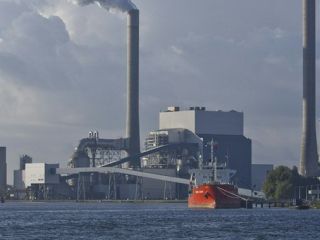Electrification will cause major increase in gas demand in the Netherlands

Switching to electric heating systems in homes and electric vehicles are two important ways to reduce CO2 emissions in the Netherlands and reduce its dependence on fossil energy such as Groningen natural gas. However, this will cause a major increase in the demand for electricity. In the most ambitious scenario, a full switch to electric heating systems and vehicles will cause a 50% rise in demand for electricity by 2050.
Paradoxically, the Netherlands will need to use gas power stations to meet this demand.
This is what professors Machiel Mulder and José Luis Moraga González from the University of Groningen conclude in a study commissioned by the Centre on Regulation in Europe (CERRE). ‘Our findings provide a new perspective on the debate on energy transition’, they say. ‘The ambitious goals in the area of sustainable solar and wind power will not be enough by a long shot to keep up with the increased demand for electricity. The Netherlands is going to close coal power stations in 2030, there will be no new nuclear power stations and as our neighbouring countries have the same problem, we won’t be able to import more electricity either. As a result we will need to use gas power stations to generate more electricity.’
Today’s energy system and actual ambitions
Mulder and Moraga González used a research method that differs from the one used in many other studies, because they wanted to gain a picture of how the actual ambitions for sustainable energy, electrification and the use of gas relate to each other. ‘We based our research on the energy system as it is at present and the government’s ambitions in the field of electrification (using electricity instead of fossil energy) and energy transition (generating sustainable energy instead of fossil energy). We calculated these ambitions through to 2050. Many other studies take the emission reduction targets as a basis and then calculate backwards to decide what is needed.’
Demand for gas will increase until 2030
Demand for gas will increase until 2030, the researchers have calculated. And even in 2050 the total Dutch gas consumption will still be about 30 billion m3, whereas at present it is about 40 billion m3. As no more gas will be produced in Groningen after 2030 and the other small gas fields will gradually be exhausted at about the same time, the Netherlands will become increasingly dependent on gas imports.
Synthetic gas production not efficient
Mulder: ‘One solution you often hear is that the Netherlands should use electrolysis to produce its own gas. But you need electricity for that too. If we use electricity to produce gas, we will need even more gas power stations to produce electricity. That’s not efficient at all.’
District heating as an alternative
Reducing domestic energy consumption is an important way to reduce demand for gas, the researchers claim. Mulder: ‘Installing district heating is a good option too. In our research we worked through a scenario that is based on the maximum use of district heating systems that use waste heat from heavy industry and gas power stations, for instance. Then we end up with an about 20% lower demand for gas, and that is at a lower price per ton of CO2 reduction. Another option is to generate much more sustainable energy. The current goals are already very ambitious, however, so that’s easier said than done.’
More information
-
Contact person for the whole CERRE project: José L. Moraga González, Professor Industrial Organization (UG) and Professor of Microeconomics (VU)
-
Contact person for the Dutch analysis: Machiel Mulder, Professor of Regulation of Energy Markets (UG)
-
Download the case study for the Netherlands: Electrification of heating and transport. A scenario analysis for the Netherlands up to 2050
-
Download the entire report: Gas and the electrification of heating & transport: scenarios for 2050
Mulder and Moraga González’s study is part of a research project by Brussels organization CERRE. The authors will present the CERRE report on Wednesday 23 May, which also contains results for Germany, Austria, Belgium and France.
The Groningen Centre for Energy Economics Research (CEER), of which Mulder is director, will host the 41st international conference of the International Association for Energy Economics (IAEE) from 10 to 13 June.


